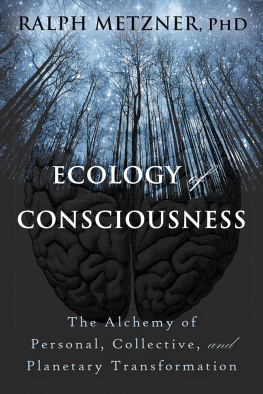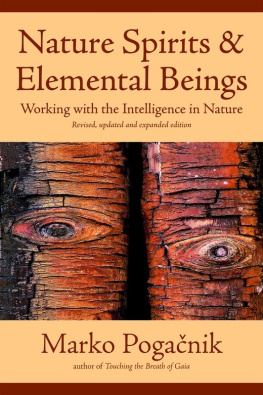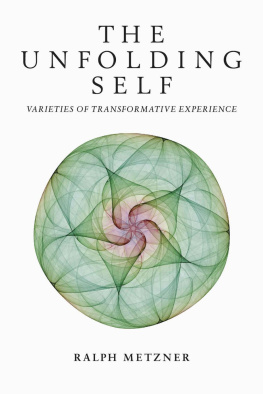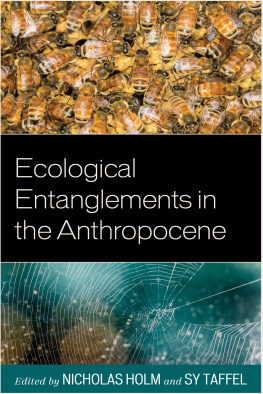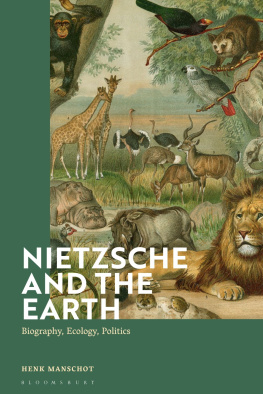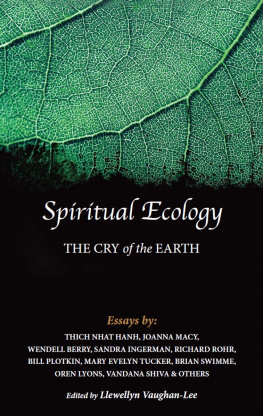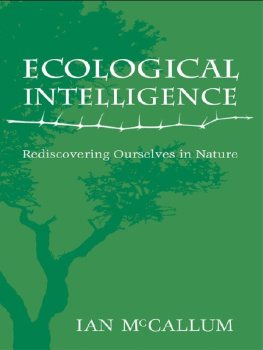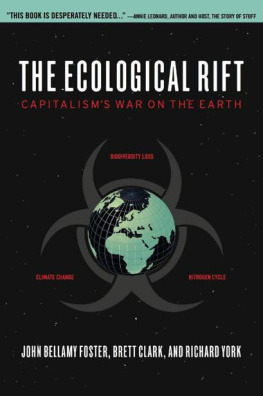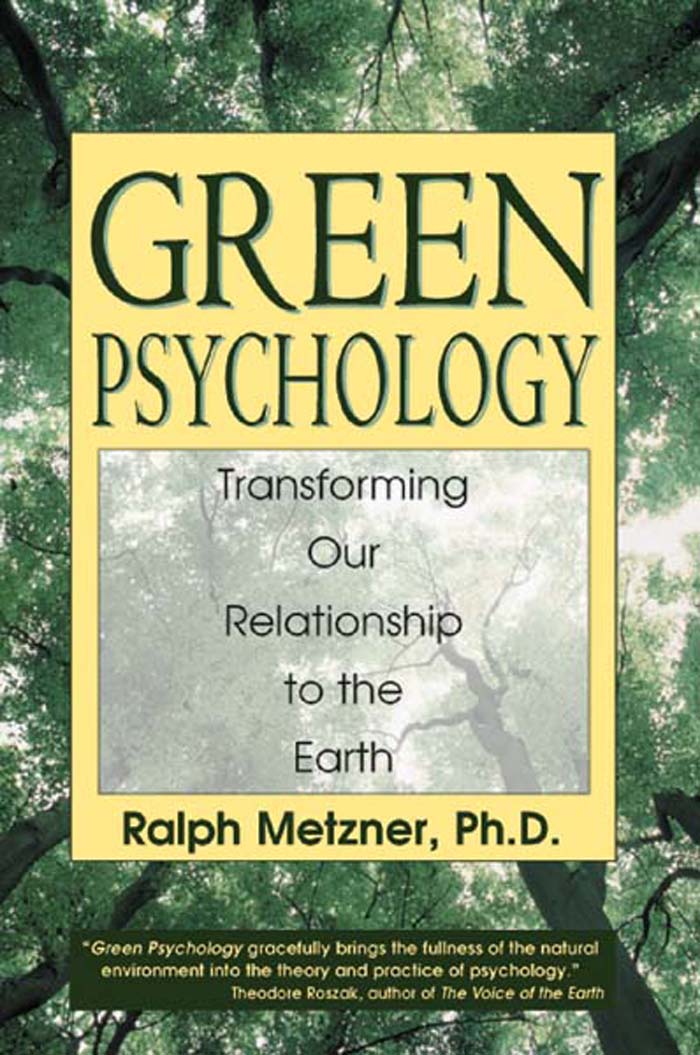
GREEN PSYCHOLOGY
Transforming Our Relationship to the Earth
Ralph Metzner, Ph.D.

Park Street Press
Rochester, Vermont

This work is dedicated
to four elders
who have inspired me
with their wisdom and vision
Hildegard von Bingen
Thomas Berry
Marija Gimbutas
Paul Shepard

Contents

Foreword
C ultures keep secrets; they illuminate some things and suppress others. Every culture conceals as much as it reveals; that is its style and its distinctive contribution. Cultures survive as long as they can maintain that style, which means as long as they can hide from themselves. There is a sense in which every culture is a conspiracy, a coordinated effort to open a few doors of perception and to close others.
The natural environment has been excluded from mainstream psychological theory so totally that it might very well be a deliberate conspiratorial act. How could so vast a flaw go unnoticed except by collusive negligence? Let me, in fact, put the case as strongly as possible. The environmental disconnection of modern psychology is indeed a conspiracy: a centuries-long collaboration among the best and most authoritative minds in our society to keep human nature as distant, different, and disengaged from nature as possible.
It is only during rare periods of disintegration or strenuous transition that courageously inquiring minds have the chance to see through the official secret acts of their culture and take a greater perspective into account. This is obviously such a period. Over the past two to three generations, for reasons both internal and external, Western culture has been showing more and more cracks in its intellectual defenses; the truths and beauties of other peoples have been showing through. Interestingly, the language in which we tend to describe this condition is frequently psychological. On a collective level, we speak of repression and breakdown. On the individual level, since the days of the Romantic artists, we have been fascinated with work and thought that walks the edges of sanity. Artists try to derange the sensibilities, seeking the madness that we sense is akin to genius. We have more and more looked to the mad but gifted few to reveal deep truths like the babbling oracles of ancient times. It sometimes seems that we take breakdown to be the signature of breakthroughas R. D. Laing once phrased it. Unless we are in the presence of a mind that confabulates with the forbidden, that dares to look beyond the conventional reality, we feel we are not in the presence of depth and truth.
As of the late twentieth century, if one were to argue that the political tensions that crisscross family life play no part in determining the sanity of individuals, who would take such a diagnosis seriously? Yet it remains a defensible professional assumption that the sanity of individuals and of whole societies has no connection with the depletion of the ozone, the death of the seas, the devastation of the rain forests, the mass extinction of species, global warming, runaway population growth, resource exhaustion... in short, with behavior both individual and collective that now threatens to destroy the living planet. In the great debate over human survival, professional psychology has elected not to be a player.
Over the past decade, an increasing number of more adventurous psychologists have sought to create new, ecologically relevant forms of therapy. Their motivation is as much ethical as it is a matter of pure theoretical curiosity. Just as lawyers have elaborated the study of environmental law and teachers have introduced environmental curricula into our schools, so the psychologists are finally, if belatedly, responding to the influence of the environmental movement.
Ralph Metzner is among the pioneers in broadening psychological theory to include the world that lies beyond our social connections. His green psychology gracefully brings the fullness of the natural environment into the theory and practice of psychotherapy. He has taken us beyond the city limits of conventional psychology to see our deep emotional connection to the planet at large. In this timely and necessary project, he deserves to take his place among the major figures in modern psychological thought.
In Green Psychology, Metzners work with myth is particularly brilliant. Where Freud and even Jung could see no greater meaning to myth than its role in the individuating processa focus that remains wholly within the human unconsciousMetzner interprets the great myths as messages from Earth, which has been the greater nurturing presence in our evolutionary story. In his hands, the myths suddenly take on a depth they never had before. Another, greater voice than our own speaks through them.
Metzner argues that there is a sympathetic bond between our species and the planet that is every bit as tenacious as the sexual instincts Freud found in the depths of the psyche and every bit as powerful as our family ties. His green psychology begins with matters as familiar to all of us as the empathic rapport with the natural world that is reborn in every child and which survives in the work of nature poets and landscape painters. Where this sense of shared identity is experienced as we most often experience it between person and person, we call it love. More coolly and distantly felt between the human and nonhuman, it is called compassion. In either case, the result is spontaneous loyalty.
Saving the life of the planet is the biggest political cause human beings have yet taken on; it requires a vision of the human personality that is just as big. Blaming and shaming are bound to continue playing a major role in environmental politics; there is more than enough guilty conscience to be worked through and still plenty of environmental malefactors to be called to account. But once politics as usual has been given its due, perhaps it is the green psychologists who will help us understand the true emotional depths of the cause, asking what environmental responsibility connects with in people that is generous, joyous, freely given, and noble.
Theodore Roszak
Professor Emeritus of History
California State University, Hayward
author of The Voice of the Earth

Introduction
N o one can doubt that we live in a time of unprecedented ecological destruction. The fabric of life on this planet is being degraded at an ever accelerating pace, accompanied by massive loss of animal and plant diversity and escalating threats to human health and well-being. Evolutionary biologists tell us that there have been numerous episodes of worldwide extinction before, including five major spasms involving the loss of up to 90 percent of existing speciesthe last one being the cataclysm sixty-five million years ago that brought the Age of Dinosaurs to an end. What is unprecedented about the present situation is that it is the actions and technological productions of one speciesthe human beingthat are bringing about this biosphere meltdown. Increasing numbers of people have therefore come to the conclusion that it is in the hearts and minds of human beings that the causes


